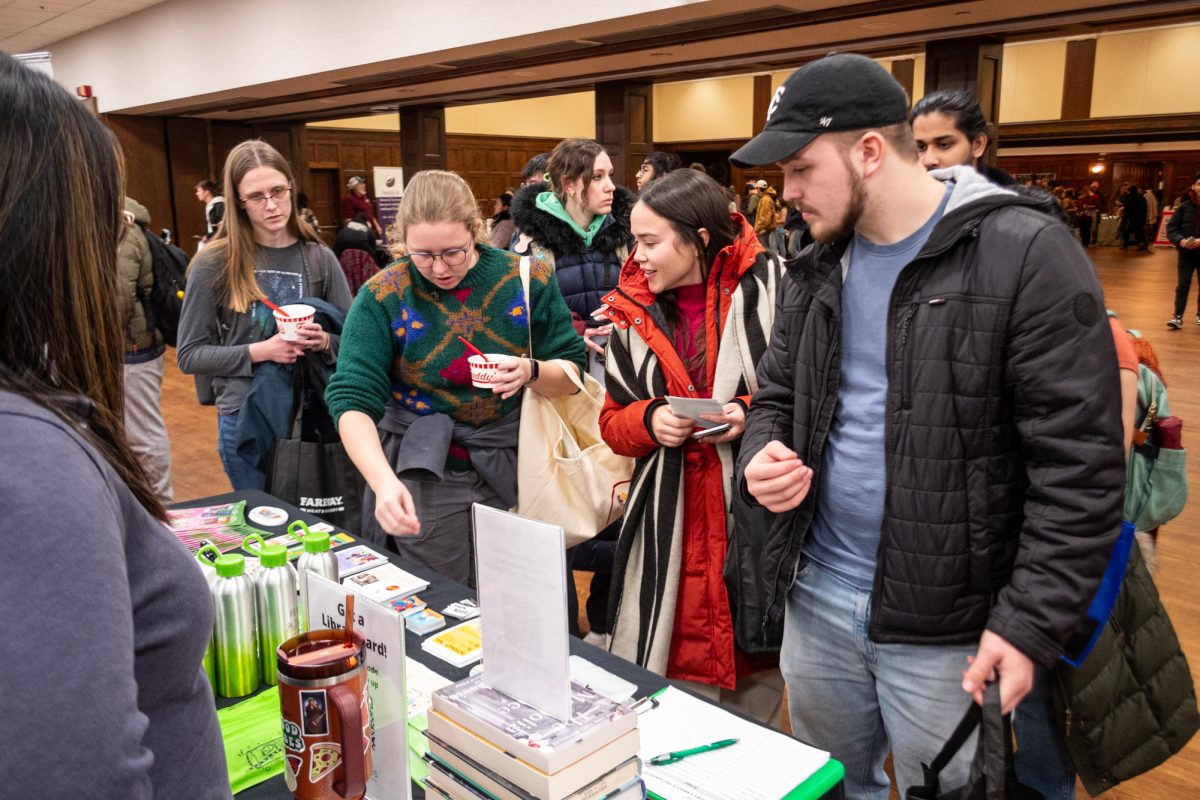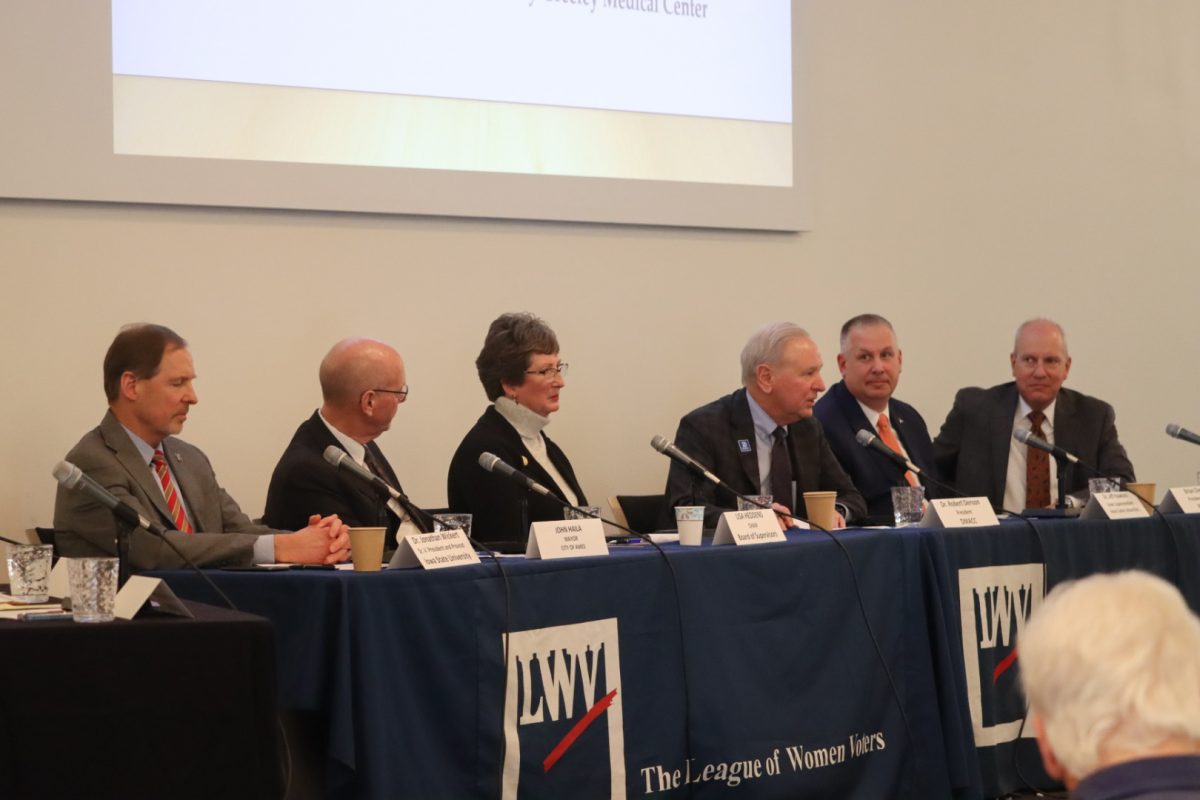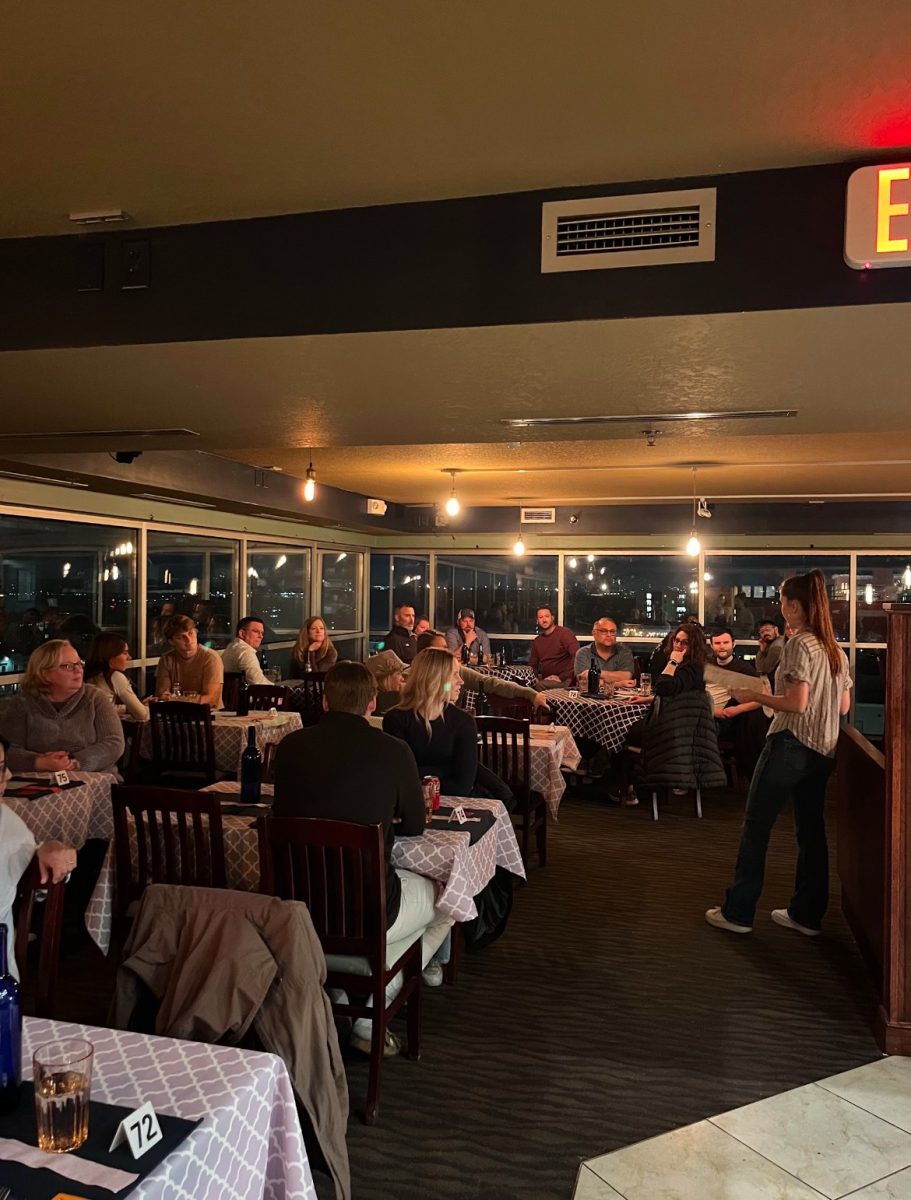What’s wrong with being greek?
June 11, 1997
In response to “The Veishea question” article in the “In Our Opinion…” section and the letter to the editor by Ms. Barbara Hall Palar, both of the Tuesday, June 10, 1997 edition of the Iowa State Daily:
As a member of the ISU greek system, I would like to apologize to the rest of the ISU students. For what, I have no idea.
Yet it seems that the greeks on this campus have offended the rest of the student population on some level.
Had we known that being leaders on campus was so offensive, we would have stayed locked up in our great big houses in greek-land and kept to ourselves. I think not.
I’m sorry to inform you, but greeks have nothing to apologize for. Maybe we should be owed the apology.
For what? We’re sorry for putting so much time and effort in to an event that glorifies ISU yet provides nothing but bad press for the greek system.
We apologize for allowing all of our houses to be overrun by outsiders and even other ISU students that think we love to have everyone over for weekend celebrations, regardless of all the property damage and theft we suffer during this great weekend. We enjoy staying up all night to watch people we don’t know stagger past our house, knowing that if they pass out our lawn, we will take the blame. Please forgive us if we’ve offended you with all the hours of labor and dollars associated with the many greek floats and philanthropies we contribute to Veishea. We look forward to sacrificing our right to have fun on a weekend of festivities so that we can watch our chapter houses while every one else celebrates. I can go on all day.
What does greek participation in Veishea do for the greeks? It costs us time, energy, money, damage, stress, bad press and animosity from the rest of our students.
For that I do not like Veishea. I spend countless hours watching out for anything and everything to go wrong, fearing the worst will happen. Although not everyone enjoys Veishea weekend, it is a time to celebrate Iowa State and its traditions. That is what I love about Veishea. I love to be reminded of the ideals and beliefs upon which our university was founded. I could do without all the parties, out of town visitors and all of the hassles that come along with these things.
I am outraged that people complain about the amount of campus leadership and involvement in which greek members participate. The leadership opportunities that are associated with being greek are a major reason why most people join the greek system.
Greeks always have been and always will be leaders. It is not even questionable. Doubt me? Here are the statistics. Did you know that all of these people are greek: 76% of U.S. Senators, 71% of men and women listed in “Who’s Who in
America,” 85% of Fortune 500 executives, all but two U.S. Presidents since 1825, 63% of U.S. Cabinet members since 1900 and all Supreme Court Justices since 1910.
I think the numbers speak for themselves. Greeks push themselves and their members to be leaders, and thus they are. How can people be upset with us for that?
If the rest of the students are upset about the amount of greeks on Veishea’s central committee, encourage more of your friends to apply. It is not our fault. Don’t give up; we are not allowed to. We are encouraged to try again.
Many greek members try for committees such as Veishea when they are freshmen and sophomores and wait until they are juniors and seniors to be accepted. During that time they have built up a resume of positions they have held and work they have done to enhance their leadership. Then, of course, there is an interview. What if you know one of the people that you are interviewing with and it helps for you to get the job? Wait, isn’t there a name for that in the real world like networking?
It seems to me that a lot of this sounds like the real world, doesn’t it? I see it as a definite advantage to ISU to have such a strong and involved greek system. Greeks apply for the positions. I wonder, if the greeks didn’t apply, how many others would? What percentage of the applications turned in were greek? I feel that if more of the non-greek students would apply for positions on committees such as Veishea, more non-greeks would get them. I know several students who were on a Veishea committee that were not greek.
I do not see why the greek system takes such hard criticism for going out of its way to make leaders out of its members. I am doubtful that anyone can explain it to me.
Ryan Goodman
Senior
Public Relations and History
Greek Member






